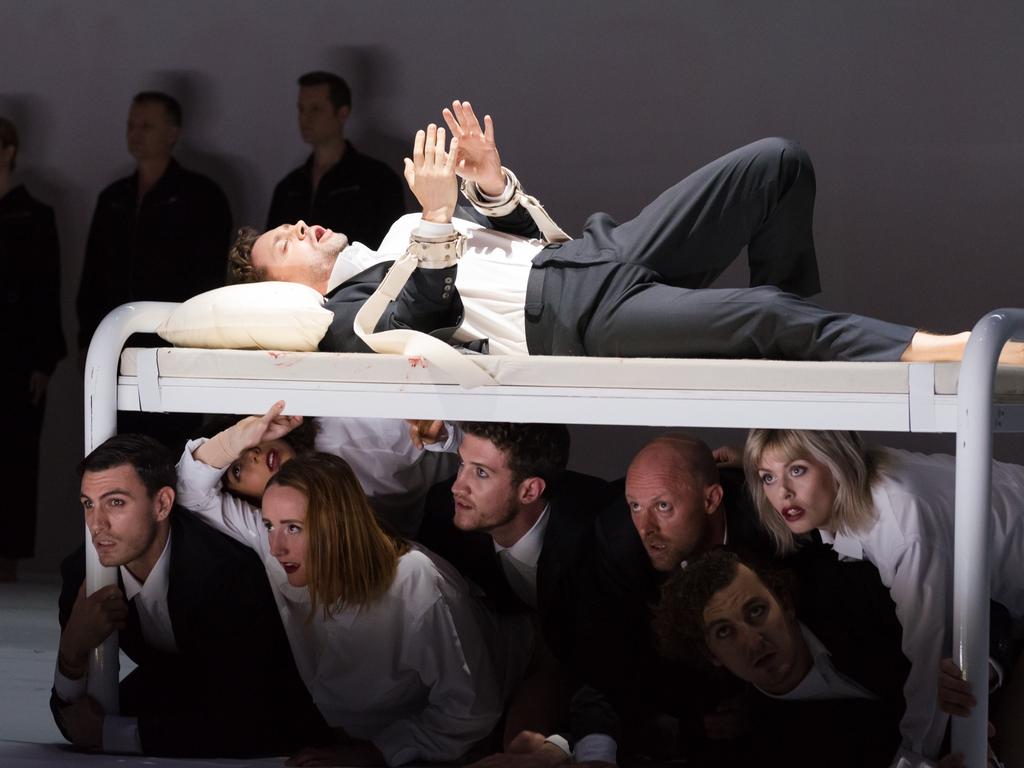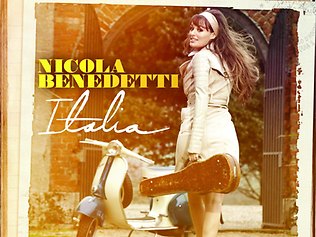How Nicola Benedetti took Edinburgh festival to the next level
As the first female director of the world’s biggest arts event – and the first Scot – Nicola Benedetti knows the importance of opening doors that can change lives and perspectives.
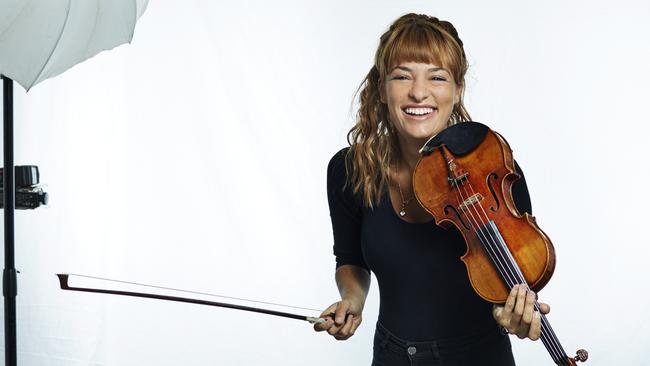
That Nicola Benedetti is one of the world’s greatest living violinists is, to her millions of fans, a fact. Grammy-winning, double Classical BRIT-awarded, the Scottish soloist and former Yehudi Menuhin protege is blessed with a dynamic range that finds the heart, the authenticity, in every piece she plays. Beethoven, Shostakovich, Vivaldi; Edward Elgar, John Tavener, jazz legend Wynton Marsalis. Regardless of composer or historical period – she’s particularly fond of baroque music – Benedetti goes straight to the music’s emotional core.
Want to see a Highlander cry? Buy them a ticket to the Menuhin tribute at the Edinburgh International Festival in August, where Benedetti will play Elgar’s achingly tender Serenade for Strings. Or gift them her latest recording, Beethoven’s Violin Concerto in D.Op 61 (released, like all her 14 previous recordings, on Decca Classics), a collaboration with the London-based Aurora Orchestra in which everyone plays from memory, free from confines of structure, finding a new grace in the process.
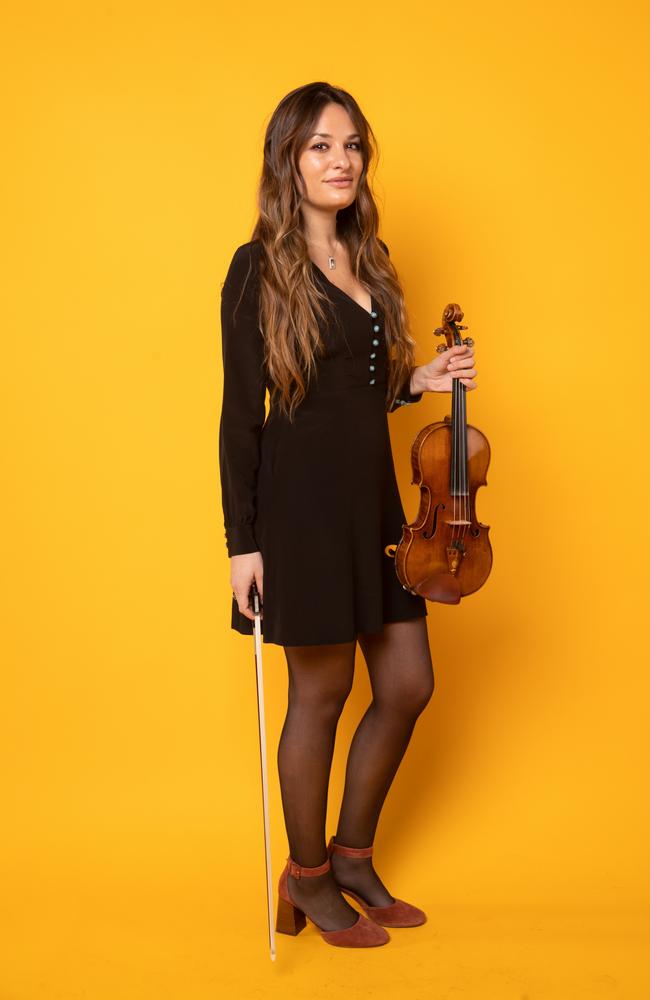
“Whether it’s onstage, in my education work or with this festival I want to believe in the possibility of changing a perspective, opening a mind, for the better,” says Benedetti, 37, chatty and likeable in the offices of the Edinburgh International Festival; in 2022 she made history as the first woman, the first Scot and the first performing artist to be appointed to the role of festival director (taking the baton from the Dublin-born Fergus Linehan, currently CEO of Sydney’s Carriageworks).
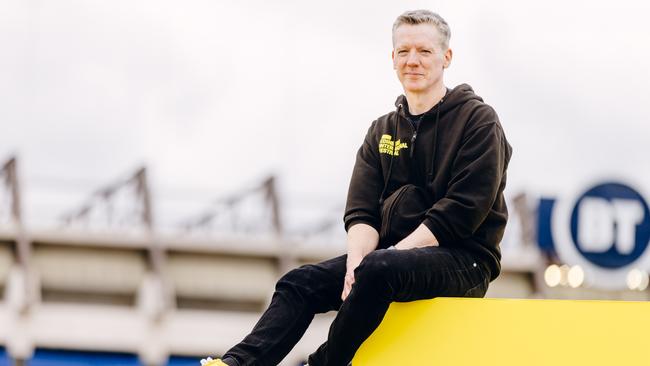
“In my experience as a violinist and a touring musician, and coming from a family of people who, apart from my sister (Stephanie Benedetti, also a violinist), were neither musicians nor regular concert or theatre-goers” – born in Kilbride, Ayrshire to an Italian father and Scottish-Italian mother, Benedetti began learning violin aged four – “I’ve seen time and again that when you combine powerful art forms with dialogue and conversation around a theme you have a higher chance of that kind of impact.”
The Truth We Seek is the theme of this year’s festival, which crosses music, opera, theatre and visual art and features 1700 artists from 42 nations, including Australia.
Highlights include the world premiere of Make It Happen by celebrated British playwright James Graham, an Edinburgh-set take on the 2008 financial crisis starring Succession’s Brian Cox; the world premiere of Scottish Ballet’s Mary, Queen of Scots, told with tradi-modern choreography and an aesthetic part haute couture, part punk; and a rare rendering of John Tavener’s eight-hour choral epic The Veil of the Temple, a colossal universal prayer that the audience experiences, sensibly, from beanbags.
“I knew John Tavener personally,” says Benedetti of the late English composer (1944-2013), who wrote several pieces for her including Song for Athene (a version of which was played at the funeral of Princess Diana), and which she featured, aged 20, on her third album, Nicola Benedetti Plays Vaughan Williams and Tavener. “He had this vibration, this spiritual energy, that infiltrated your body for days. This great work is expressing his belief in a universal truth, of the oneness of us as human beings.”
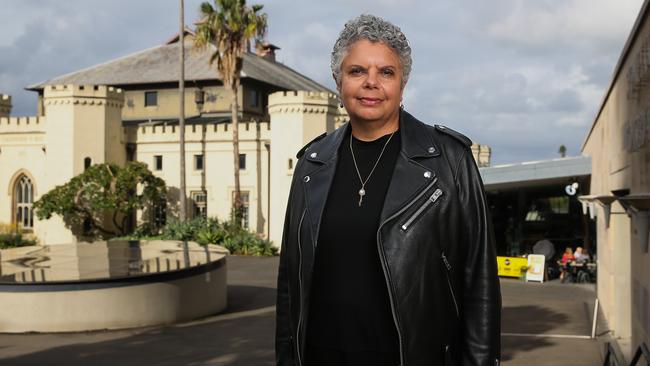
The Australian content similarly prompts double-takes: the world premiere of Treaty by award-winning First Nations composer Deborah Cheetham Fraillon, with the Melbourne Symphony Orchestra and William Barton on didgeridoo (“We talk about internationalism but it’s incredibly important that our international curiosity extends beyond Beethoven and Mahler”). There’s the European premiere of Opera Queensland’s reimagining of Gluck’s Orpheus and Eurydice in association with contemporary circus outfit Circa, and a festival debut from the Dan Daw Show, a fusion of sexy choreography and raw theatricality that’s both a paean to kink and a riposte to the disabling forces of society.
“We invite you on a journey into the elusive nature of truth, in our personal and public lives,” states Benedetti on the festival website. “In an era of ‘alternative facts’ and manipulated narratives, the arts offer us something deeper: a poetic and metaphorical wisdom both nuanced and more precise.”
It’s a sentiment that dovetails with Edinburgh’s long-held reputation as the city of the Enlightenment.
The Scottish metropolis, with its blend of medieval and neoclassical architecture, its historic Old Town of cobbled streets, sandstone steps, sprawling 1582-founded University of Edinburgh and the Royal Mile, extending from Edinburgh Castle to the Palace of Holyrood House, became a cradle of intellectual activity in the 18th century and remains a magnet for cultural pioneers. In 1947, in the wake of World War II, a Jewish refugee named Rudolf Bing and civic leaders founded the Edinburgh International Festival in response to a desire for a celebration of “the flowering of the human spirit”.
“Our origin story is about reconciliation in the aftermath of destruction and war, ideals that were conscious in the minds of a lot of artists then,” says Benedetti of the first festival, which famously reunited the Vienna Philharmonic with their Jewish prewar conductor, Bruno Walter.
“This year’s theme is mindful of our founding ideals. It’s about offering a sense of possibility. All you can do is open the door in the hope that people will step through.”
Once upon a time, Benedetti used to practise violin for up to 12 hours a day. And while she’s eased off a little, her current workload – practising, performing, recording, directing the festival with her supportive team – demands some exceptional time-management skills. Furthermore, she also oversees the Benedetti Foundation, which she co-founded in 2019 to provide music education opportunities for young musicians in Scotland and further afield.
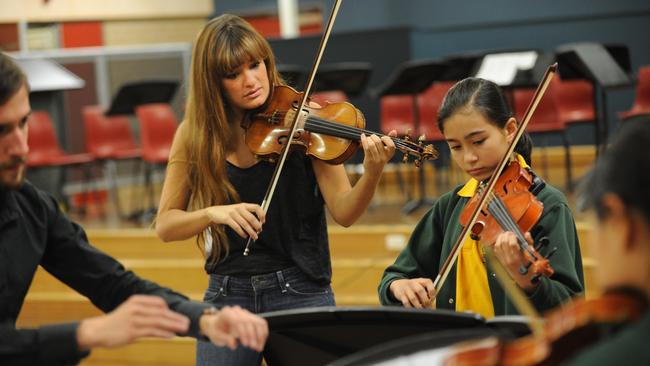
“We’ve worked with tens of thousands of kids,” she says. “I couldn’t say a proudest moment because every child equals every other child and therefore everyone you impact is important. But I don’t go anywhere, not to any airport, restaurant or concert hall without somebody telling me they have a son, niece or granddaughter who attended a session and whose life has been changed for the better.”
All this, and she’s a new mother. Benedetti’s first child, a daughter, was born in May 2024.
“Her name is Elise,” she says when Review asks. “I don’t think I’ve said that publicly before but it’s not a secret. I’ve got a lot on, but I could happily hang out with her all day long. Lately I’ve been playing her (20th century American folk and blues icon) Mississippi John Hurt, which she just loves.”
A smile. “I probably know the words to almost every song Mississippi John ever recorded.”
As any classical music buff will confirm, Fur Elise is one of Beethoven’s most popular piano pieces, much used in films and commercials – and by the Benedetti Foundation as an instructional tool. As is Elgar’s Salut d’Amour, which Benedetti learned to play aged six (“It was so beautiful it made me cry”), and which – during the pandemic – she deconstructed via daily Learn With Nicky YouTube tutorials, having featured the work, with piano accompaniment, on her 2020 Elgar Violin Concerto album.
Benedetti has played Salut d’Amour on her frequent visits to Australia, wielding her $12.5m Gariel Stradivarius (permanently loaned to her in 2012 by a London-based banker, Jonathan Moulds) with precision, virtuosity and signature sweetness of tone. I tell her I know a Sydney editor who wants her version of Salut d’Amour to soundtrack his funeral. She laughs good-naturedly. “Oh my,” she says.
Benedetti was last in Australia in September 2023, performing at Sydney Opera House with the Sydney Symphony Orchestra and the Jazz At The Lincoln Centre Orchestra in a program that included a violin concerto – a technically challenging, often humorous bringing together of Scottish folk and African-American jazz and blues – written for her by Wynton Marsalis, the iconic trumpeter, composer, nine-time Grammy winner and artistic director of Jazz at the Lincoln Centre in New York.
“I’ve known Wynton since I was 17. I know his playing and his music. I’ve been to countless numbers of his performances. He can’t help but share anecdotes and bits of knowledge and history about music. He’s a musician in the most thorough, truest sense of the word.”
The concerto premiered at the Barbican in London way back in 2015, by which time the two – she a BBC Young Musician of the Year at 16, he a recipient of Grammys for both classical and jazz recordings aged 23 – had been friends and collaborators for years.
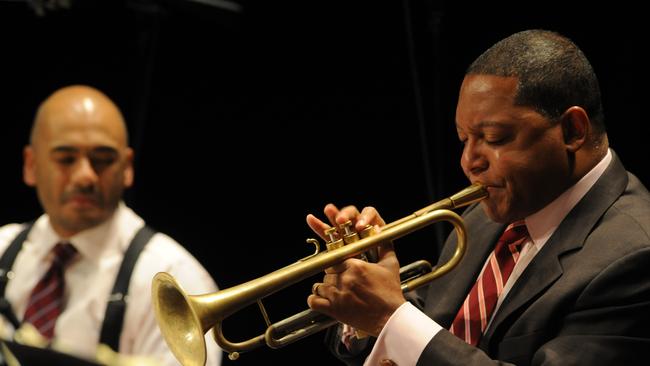
“There is wisdom and warmth in (Benedetti’s) sound,” he said then.
“She has a range of emotion like Ornette Coleman, who was able to go from deep crying pathos to a laughing quality in the course of a note or two. She has humanity; it’s not all about her and her career.”
Both musicians share a commitment to education, to music. Both share the view that artists are gatekeepers of truth. But do they also share, well, something else?
From 2007 until 2017 Benedetti was in a relationship with German cellist Leonard Elschenbroich, with whom she continues to play in a chamber music trio alongside British Ukrainian pianist Alexei Grynyuk. But from the moment she announced her pregnancy in March 2024, the internet has been buzzing with rumours, so far unverified, that Wynton Marsalis is the father of her child.
So, is it him? “That information is fairly easily accessible. It’s not a secret,” is the cryptic answer.
The first female director. The first musician. The first Scot. And now, the first mother. Has the pressure of being director of the Edinburgh International Festival – the biggest celebration of the arts in the world – got any less, four years in?
“I would say it matters just as much as it ever did, but the responsibility of leading this festival is neither raised nor diminished by me being a woman. You have a huge duty and a job to do. I want people to feel changed for the better by a festival that is accessible, affordable, diverse, brave, joyful, thought-provoking and truthful. It won’t be everyone’s cup of tea of course but I want to ensure that nothing is in the way of that open-door feeling.”
The Edinburgh International Festival runs from August 1 to 24.

